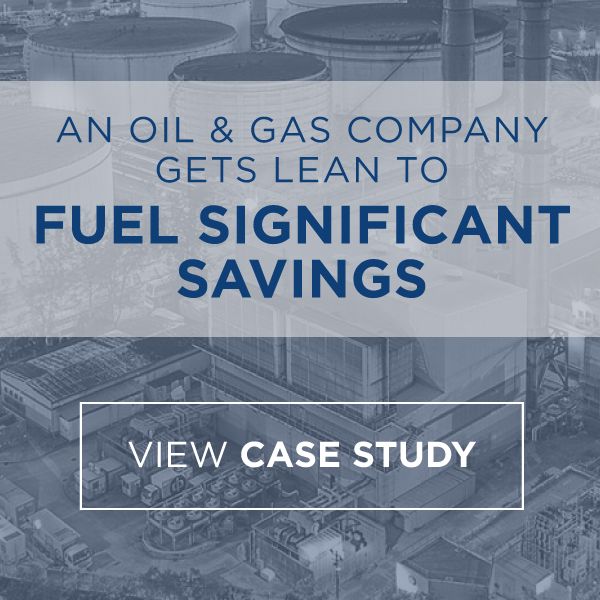
Oil & Gas Industry Issues and Opportunities for Today and Tomorrow
From supply chain disruptions to fluctuating demand, the past few years have caused a ripple-like wave of challenges throughout businesses across the globe, including the oil and gas industry.
Fortunately, with oil prices bouncing back, the oil and gas industry has nearly recovered from the issues to pre-COVID operations. That being said, there are a considerable number of concerns on the forefront of the industry that will shape the course of operations for years to come.
So, what’s the state of the oil and gas industry today? Let’s look at some of the issues and opportunities they’re facing.
Production capacity concerns
For months, we’ve been seeing news reports about the Russia and Ukraine conflict. Many of us have been seeking updates on the conflict itself, but those in the oil and gas industry have no doubt kept a keen eye on how it is affecting the global oil and gas market.
The sanctions placed on Russian oil have caused strain on a U.S. refinery system that, like so many manufacturing industries, was already overwhelmed and under-staffed following the COVID pandemic and the Great Resignation that followed. Demand for gas plummeted during a time when the majority of the country stayed in their homes for months on end, which left a large number of refineries with no other choice but to close their doors.
Refinery numbers still have not yet rebounded, which has resulted in a refining shortage of roughly one million barrels of oil a day compared to pre-COVID numbers. Add in sanctioning one of the world’s biggest oil producers, and the increased demand coupled with reduced refining capabilities combines into the perfect storm for shortages and increased prices.
Mergers & acquisitions opportunities
Despite the recently tabled climate bill, this country (and the world at large) is moving toward a renewable energy future. Even if it’s at a snail’s pace.
This has caused leaders in the oil and gas industry to evaluate operations and find ways to meet renewable and decarbonization efforts in the next few decades. One option is partnering with or purchasing renewable energy companies.
Companies like BP, Equinor, Respol, and PKN Orlen are leading the charge in renewable energy investment opportunities, and are reaping the financial and ecological rewards of doing so. Expect many major players in the oil and gas industry to continue to expand their portfolios and increase their outreach with strategic mergers and acquisitions into renewable energy.

Appeasement of investors
Despite incredible year-over-year growth, the oil and gas industry as a whole has been plagued with cash flow issues that have caused investors to reconsider their financial plans.
There are a host of reasons why investors have turned their focus toward other industries in recent years: Some have been leaving due to increased concerns over carbon-mitigation and ecological issues, some have left due to oil and gas’s tendency to overspend cash flows in the name of company growth and continued investment, while others have been scared away due to plain uncertainty.
Whatever the case may be, oil and gas companies are seeking to attract investors again, while investors want to see predictability and consistent returns to shareholders. The aforementioned increase in renewable mergers and acquisitions opportunities is a step in the right direction for the oil and gas industry, and that coupled with an inevitable stabilization will no doubt cause investors to flock back to the industry.
Outdated infrastructure & opportunity for innovation
Across the board, oil and gas infrastructure is aging.
In the off-shore sector, oil platforms are becoming old, deteriorated and increasingly at-risk for operational failures and natural disasters. This, of course, poses a problem not only for oil and gas companies meeting the ever-growing demand of the marketplace, but also risks ecological disaster in the form of oil spills and other malfunctions. Equipment and structural deterioration is no doubt due to saltwater and other environmental factors that come with operating in the ocean, and improvements to such facilities come at great expense, leaving some executives to employ a “we’ll-fix-it-when-it’s-broken” approach.
On land, plants and refineries across the country are aging, too, with many having outdated control loops, absences of updating engineering controls, and lack of complete computerization. This, of course, doesn’t even touch on the efficiency potential that technological aspects like robotic automation, artificial intelligence and IoT advances could bring to these facilities.
We can help
No matter the challenges, issues or opportunities facing the oil and gas industry, one solution is getting the job done more efficiently. That means looking at supply issues in new ways, casting an eye toward structural improvements and ensuring your day-to-day efficiency in the refineries and out in the field. We can help with that. At USC Consulting, we’ve been working with companies in a wide range of industries to up their efficiency game for more than 50 years.
Contact us today if you’d like to talk about how we can help your business.






